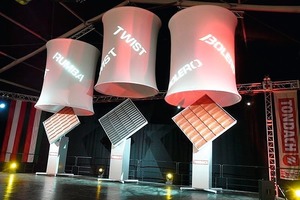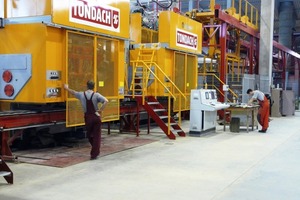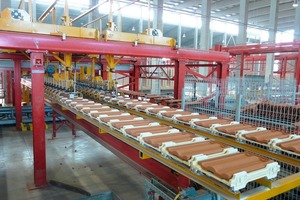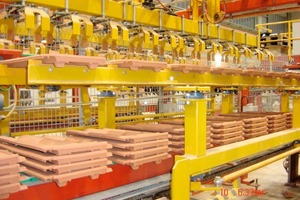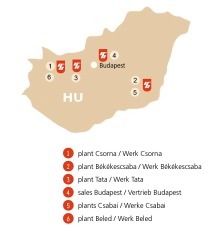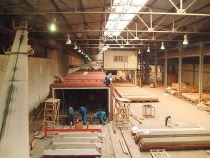Rumba, Twist and Bolero at the inauguration of the new Tondach plant in Bekescaba
Tondach Group in Bekescaba, Hungary.
The most up-to-date technologies for each production stage have been chosen by Tondach in order to produce high-quality roofing tiles and accessories.
Within the scope of a joint venture with Poittemill,
Ceric received the order for the design and supply of
the dry preparation plant. This choice was made on account of the remarkable results achieved by Ceric at another Tondach plant in Kanjiza (Serbia). The very fine dry grinding of the raw material guarantees a faultless product without lime grain. Due to this process the mechanical features of the tile body are improved and an exemplary surface finish is produced.
Rieter, another Keyria company, supplied the plant with two extrusion groups and two large-size presses of type DR6/200, whereby each machine can press three large roofing tiles at the same time.
For the dryer, Ceric has supplied plastic auto-stackable drying trays of type ACP (self centering). This system ensures optimal support and ventilation of the roofing tile during the critical phase of the drying process. It also allows the use of very simple and well functioning handling principles while providing for easy and safe accessibility of all equipment parts in the production line.
The large-size roofing tiles are fired flat on individual refractory supports (H-cassettes) in order to guarantee the ideal geometry of the finished product. The H-cassette shuttle handling system marketed by Ceric was specially developed in order to allow movement without knocks or impacts so as to avoid damaging the supports, thus contributing to reducing the operating costs.
With regard to the packaging system, Ceric has supplied an automated robotized line which allows two different types of products to be dealt with at the same time. The final packaging design has been made in order to secure and protect the roofing tiles during transportation between the production site and the end user.
The total production of the plant will amount to around 30 million standard roofing tiles and two million accessory tiles per year.

